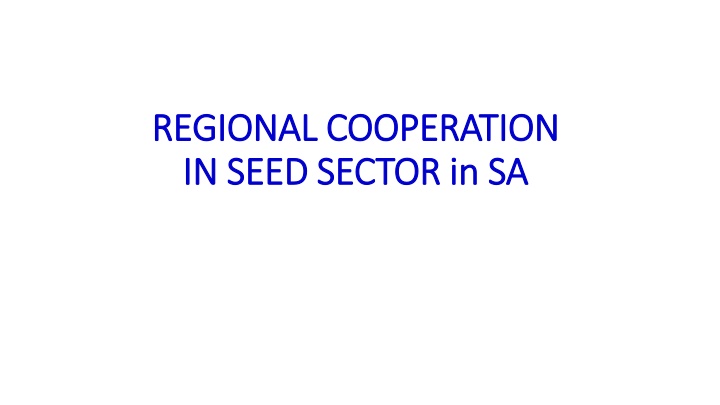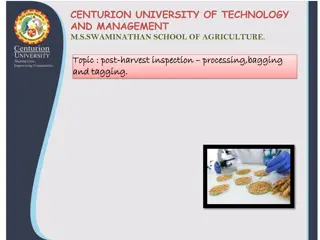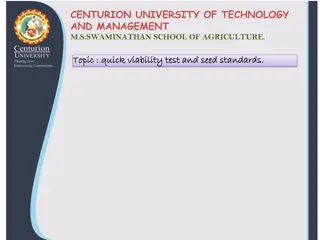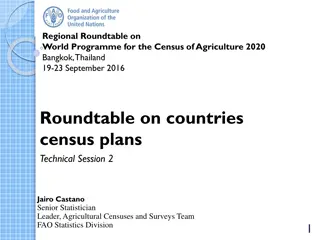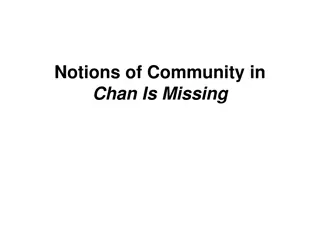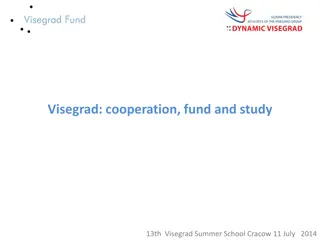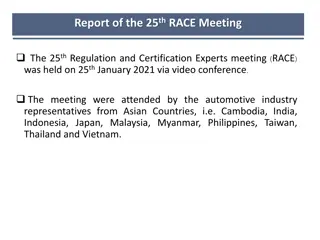Enhancing Regional Cooperation in Seed Sector among South Asian Countries
South Asian countries like Bangladesh, India, and Nepal have well-established rice research and varietal development programs, creating a need for regional cooperation to streamline varietal release processes and maximize resource efficiency. Collaborative efforts include joint varietal evaluation, reciprocal recognition of evaluation data, and harmonization of seed systems. The goal is to benefit farmers and promote sustainable agriculture practices in the region.
Download Presentation

Please find below an Image/Link to download the presentation.
The content on the website is provided AS IS for your information and personal use only. It may not be sold, licensed, or shared on other websites without obtaining consent from the author.If you encounter any issues during the download, it is possible that the publisher has removed the file from their server.
You are allowed to download the files provided on this website for personal or commercial use, subject to the condition that they are used lawfully. All files are the property of their respective owners.
The content on the website is provided AS IS for your information and personal use only. It may not be sold, licensed, or shared on other websites without obtaining consent from the author.
E N D
Presentation Transcript
REGIONAL COOPERATION REGIONAL COOPERATION IN SEED SECTOR in SA IN SEED SECTOR in SA
Few facts Mega varieties of Bangladesh - BR11, BRRI dhan 28 & BRRI dhan 29 are widely grown in WB, Assam and Tripura Indian rice varieties covered approx. 21% area in Bangladesh during the wet season of 2013. Swarna (MTU 7029), although never released in Bangladesh, is most popular variety in Aman season in Bangladesh. Indian rice varieties, Swarna, Sarju 52 and Samba Mahsuri are popular in Nepal terai THESE COUNTRIES SHARE BORDER AND SIMILAR AGROECOLOGIES
FEW FACTS All three countries : Bangladesh, India and Nepal has got well established rice research and varietal development program & seed system RICE VARIEITAL EVULATION AND RELEASE SYSTEM IN BANGLADESH, INDIA AND NEPAL ARE AT PAR
There is need for regional cooperation to speed up the process of varietal release and out scaling for the benefit of farmers and for more efficient utilization of resources.
Regional Workshop for Cooperation on Seed Issues Dhaka 17 February 2013
India and Bangladesh: the key players Policies, Politics, Persistence and Pragmatism:Part 1 6 17 April 2002 16-17 Feb 2013
Bangladesh-India-IRRI collaboration : Areas identified (Protocol signed on 17 February 2013) Joint varietal evaluation and release Reciprocal recognition of evaluation data for varietal release Reducing time for the evaluation of varieties released in neighbouring countries for similar agro-ecologies Reducing time for evaluation for MAS generated varieties Acceptance of PVS data as primary data for varietal release Pre-release seed multiplication & promotion Encouraging private sector by providing level playing field. Harmonization of seed system Germplasm exchange
Bangladesh, India, Nepal and IRRI collaboration (protocol signed on 18 October 2014) * Protocol signed by Bangladesh, India and IRRI extended to Nepal * Three countries agreed to share the evaluation data and varieties released in their respective countries for release and commercialization in the other two countries
Implementation of agreement Implementation of agreement India has already notified following varieties released in Bangladesh for cultivation in WB, Assam and Tripura BINA dhan 8, BINA dhan 10, BINA dhan 11 & BINA dhan 12 India has notified following varieties released in Nepal for UP and Bihar Sukha dhan 5 & Sukha dhan 6
The Ministry of Agriculture in India allocated 30% rice budget under its two mega schemes NFSM (National Food Security Mission) and BGREI (Bringing Green Revolution to Eartern India) for the year 2015 for promotion of stress tolerant rice varieties (mainly Swarna-Sub1, Sahbhagi dhan). (Exact allocation will be known first week of April; budget allocation for next financial year- but expected to be > $ 100 million).
